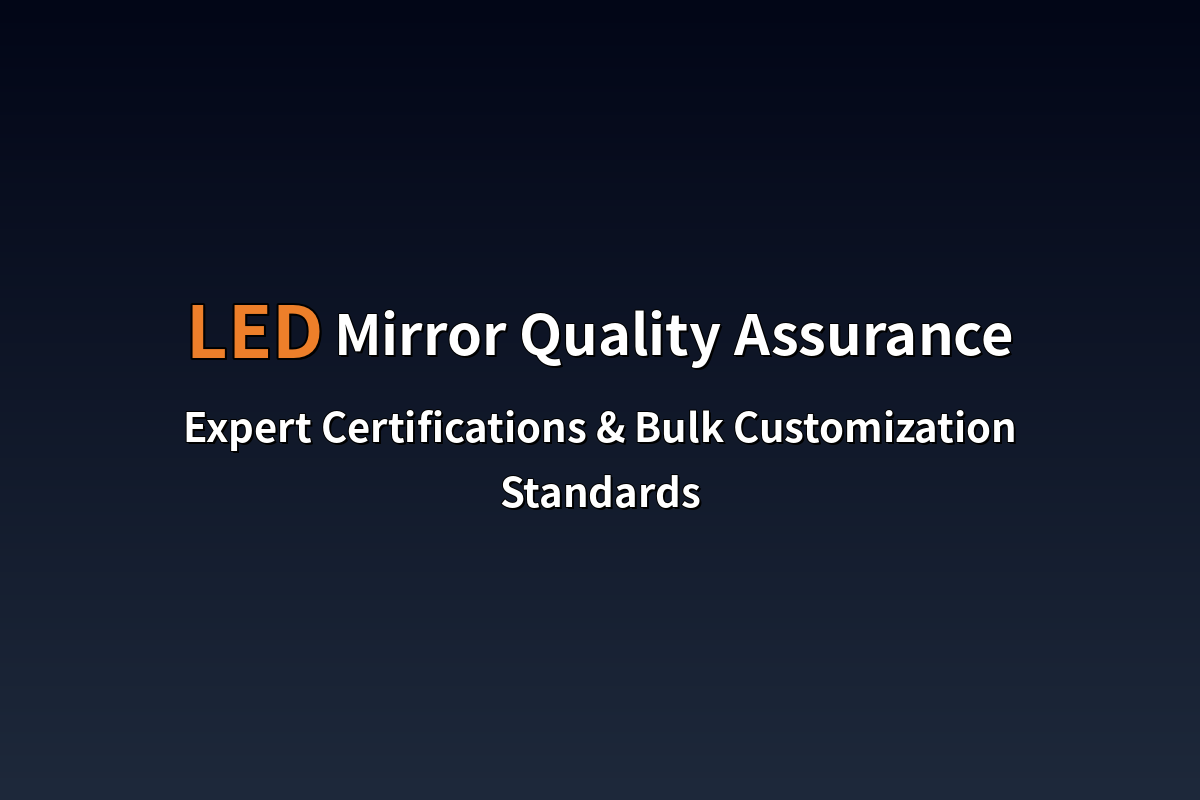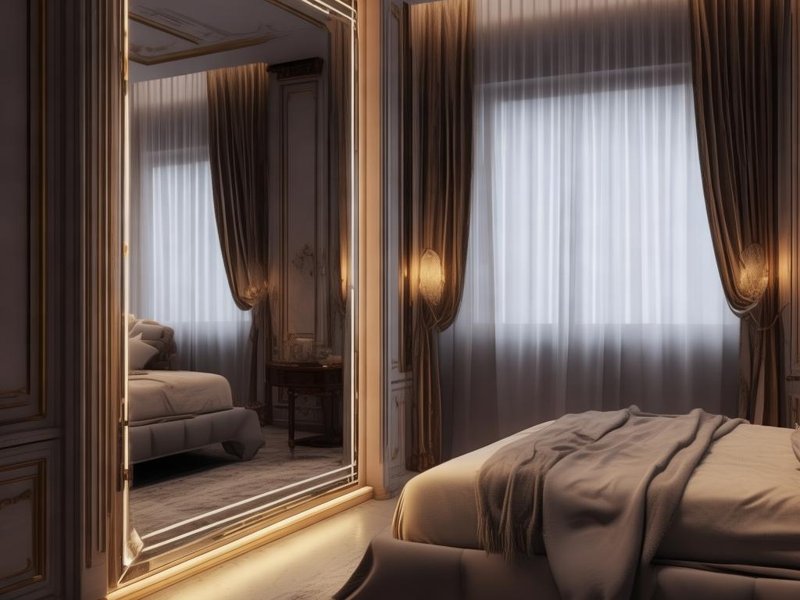In the dynamic world of commercial design and retail, the demand for top-notch, customized LED mirrors has skyrocketed. As a B2B procurement manager, you know that the quality of your bulk customization projects is crucial. This article is your guide to understanding the significance of LED mirror quality certification, the standards that shape these products, and how embracing these certifications can elevate your procurement process to new heights.

When you're dealing with large orders of customized LED mirrors, the pressure is on to deliver perfection. A single flawed mirror can cast a shadow over your brand's reputation and lead to expensive issues down the line. That's why LED mirror quality certification is a game-changer. It's like a seal of approval that guarantees a product has passed a rigorous quality check.
Imagine you're ordering hundreds of LED mirrors for a high-end hotel. Consistency is key. Quality certifications like those from UL, CE, and RoHS ensure that every mirror in that batch meets the same high standards, from the first to the last.
In the B2B world, trust is everything. By choosing suppliers with certified LED mirrors, you're not just buying a product; you're forging a partnership with a company that stands behind its work. This trust is passed on to your customers, who will appreciate the quality and dependability of the mirrors you provide.
To make informed procurement decisions, it's essential to understand the certifications that govern LED mirror quality. Here are a few that you should be familiar with:
The Underwriters Laboratories (UL) is a household name in safety standards. Their certification process for LED mirrors ensures they meet tough safety, performance, and environmental criteria. A UL-certified mirror is a mark of quality that you can count on.
The CE mark is a beacon for European markets, signaling that a product meets all the necessary health, safety, and environmental regulations. For those of you in the European procurement space, this certification is non-negotiable.
The Restriction of Hazardous Substances (RoHS) directive is all about the environment. It restricts the use of certain hazardous materials in electronic products. By ensuring your LED mirrors are RoHS-compliant, you're not only meeting regulations but also setting a green standard for your industry.

Now that we've covered the basics of LED mirror quality certification, let's dive into how these certifications add real value to your procurement process.
Quality certifications act as a safeguard against defective products. This peace of mind can save you time, resources, and the headache of dealing with returns or recalls. Remember, one defective mirror can be a domino effect for your brand.
When you work with suppliers who have a strong quality assurance system, the procurement process becomes smoother. You can rely on the products to meet your specifications, which means fewer quality checks and less back-and-forth.
While certifications might seem like an extra cost, they can actually save you money. By reducing the risk of defective products, you avoid the costs associated with returns, recalls, and customer dissatisfaction.
At the end of the day, your customers are the ones who benefit from high-quality products. By procuring LED mirrors that meet the highest standards, you're ensuring that their expectations are met, leading to greater satisfaction and loyalty.
In the realm of bulk customization projects, LED mirror quality certification is more than a regulatory checkbox—it's a strategic asset. By understanding the importance of these certifications, the standards they represent, and the value they bring to your procurement process, you're making informed decisions that protect your brand, reduce risks, and enhance customer satisfaction.
As you take on your next bulk customization project, remember that the right quality certification can be the difference between a successful partnership and a costly misstep. Invest in quality, invest in trust, and watch as your business shines brighter than ever.